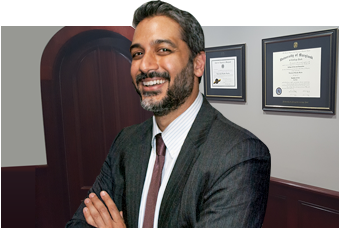When Media Impacts A Trial

From television, magazines, newspapers and radio to other forms of digital media, you can find virtually any information you want. We all know the public is influenced by the media. It impacts our opinions about fashion, diet, activity, and politics. While the benefit of this may be argued, there are particular circumstances in which the impact of media influence can be seriously harmful: when criminal defendants face judgment outside of a trial. It can be problematic because the American judicial system relies on the impartiality of jurors as they weigh the evidence presented during trial. When a juror has heard about a case and been swayed in their opinion of a defendant, it may be difficult to provide an unbiased view of evidence presented in court. Courtroom cameras have been known to affect the way witnesses and/or jurors behave, as well. It’s a big deal, especially when defendants are facing serious penalties.
Publicity Impacts Trials
Finding jurors who can look beyond their own preconceptions in high profile cases that have been subjected to media reports can be especially challenging. A juror’s open-mindedness is essential, and is analyzed during the jury selection process known as voir dire. At this point attorneys representing each side question members of the jury pool. Each juror’s exposure to media reports related to the case may be addressed at this time. Those in the legal community recognize that media can predispose potential jurors to one belief or another, even if the jurors in question may not realize it themselves. When a juror does acknowledge that they cannot be impartial or follow the judge’s instructions, they may be eliminated for cause by either side.
Judges Could be Biased as Well
Naturally, being that judges are people too, they may be unfairly biased due to media reports they’ve consumed. Research reveals that elected judges are vulnerable to questions surrounding the local public view of criminal activity, which results in more severe sentencing when cases they oversee are widely reported.
Death Penalty Trials
Capital cases can be particularly challenging when it comes to bias for two reasons:
- They have commonly had extensive media coverage.
- They are always emotionally charged.
In such cases, jurors must be “death qualified.” Their willingness and ability to weigh the evidence presented –including aggravating or mitigating evidence–and truly consider sentencing someone to life in prison, or death will be a matter of intense scrutiny. Determining guilt or innocence can be especially difficult for jurors in these cases, particularly if the media has had a strong impact on views of the case before it gets to trial. As a rule, death qualified jurors are more likely to have watched news daily according to research, often leaning toward a guilty verdict.
The Defense You Need
If you are facing charges in a high-profile case, particularly a capital case, you need an aggressive defense that takes into consideration the impact of media. The La Plata & Waldorf criminal defense lawyers at The Law Office of Hammad S. Matin are experienced, and will mount a defense on all fronts. To discuss, schedule a confidential consultation today.

